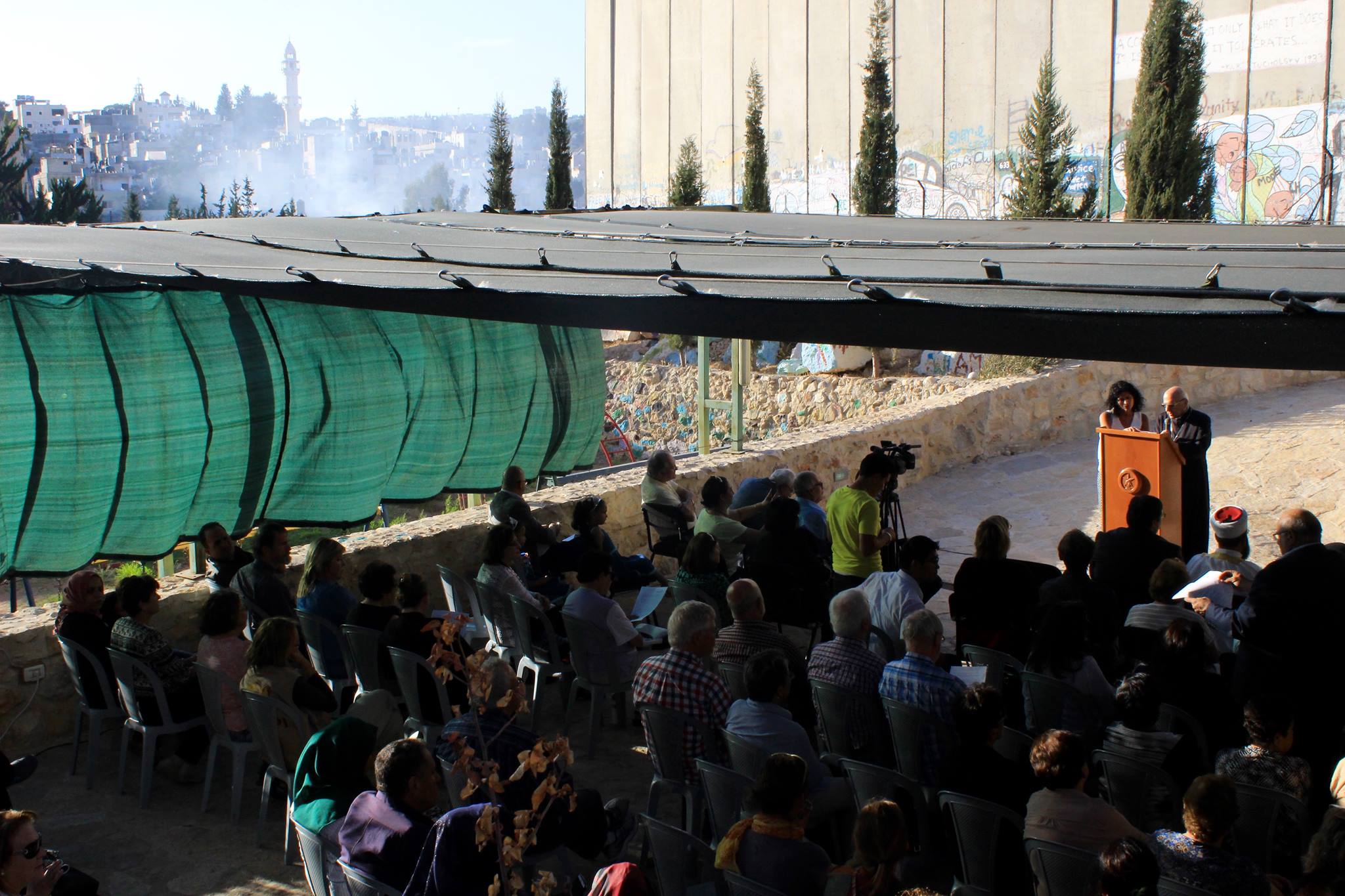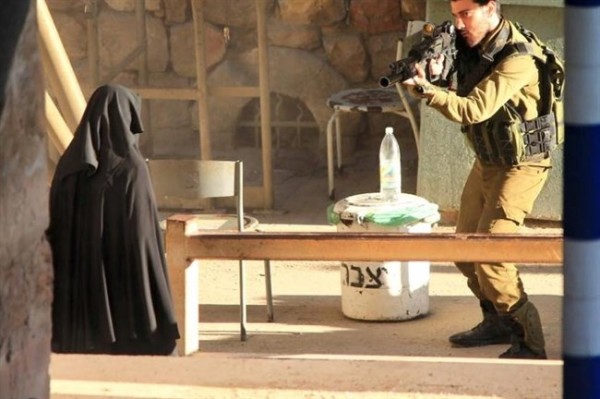Category: Features
-
World Week of Peace 2016
24th September 2016 | International Solidarity Movement, al-Khalil team | Bethlehem, occupied Palestine Fire. That seemed to be the theme yesterday as we celebrated World Week for Peace in Bethlehem. Fire, when tear gas canisters erupted into flames in the Aida refugee camp, showing the continued violence. Fire, as we lit candles in the shape…
-
Continuing injustice: One year since extrajudicial execution of Hadeel al-Hashlamoun
22nd September 2016 | International Solidarity Movement, al-Khalil team | Hebron, occupied Palestine One year has passed since the extrajudicial execution of the Palestinian student Hadeel al-Hashlamoun by Israeli forces at Shuhada checkpoint in occupied al-Khalil (Hebron). One year without justice for the family of the slain teen – one year of complete lack of…
-
Israeli forces continue annexation of ethnically cleansed Shuhada Street
20th September 2016 | International Solidarity Movement, al-Khalil team | Hebron, occupied Palestine Israeli forces in occupied al-Khalil (Hebron) are increasing their efforts to slowly annex even more of the tiny part of Shuhada Street where Palestinians are still allowed to walk. The majority of Shuhada Street, once the main Palestinian market and connection between…



